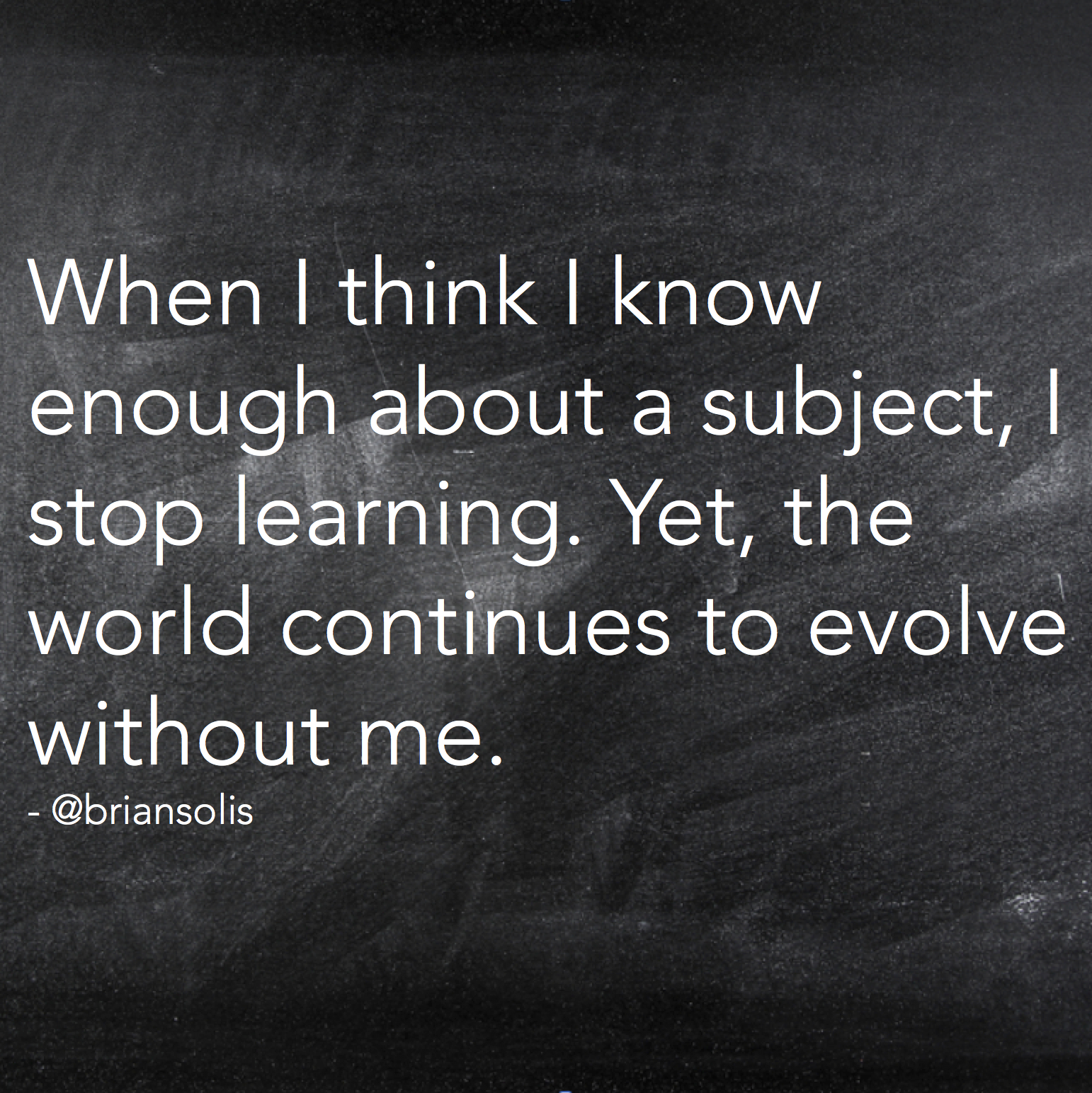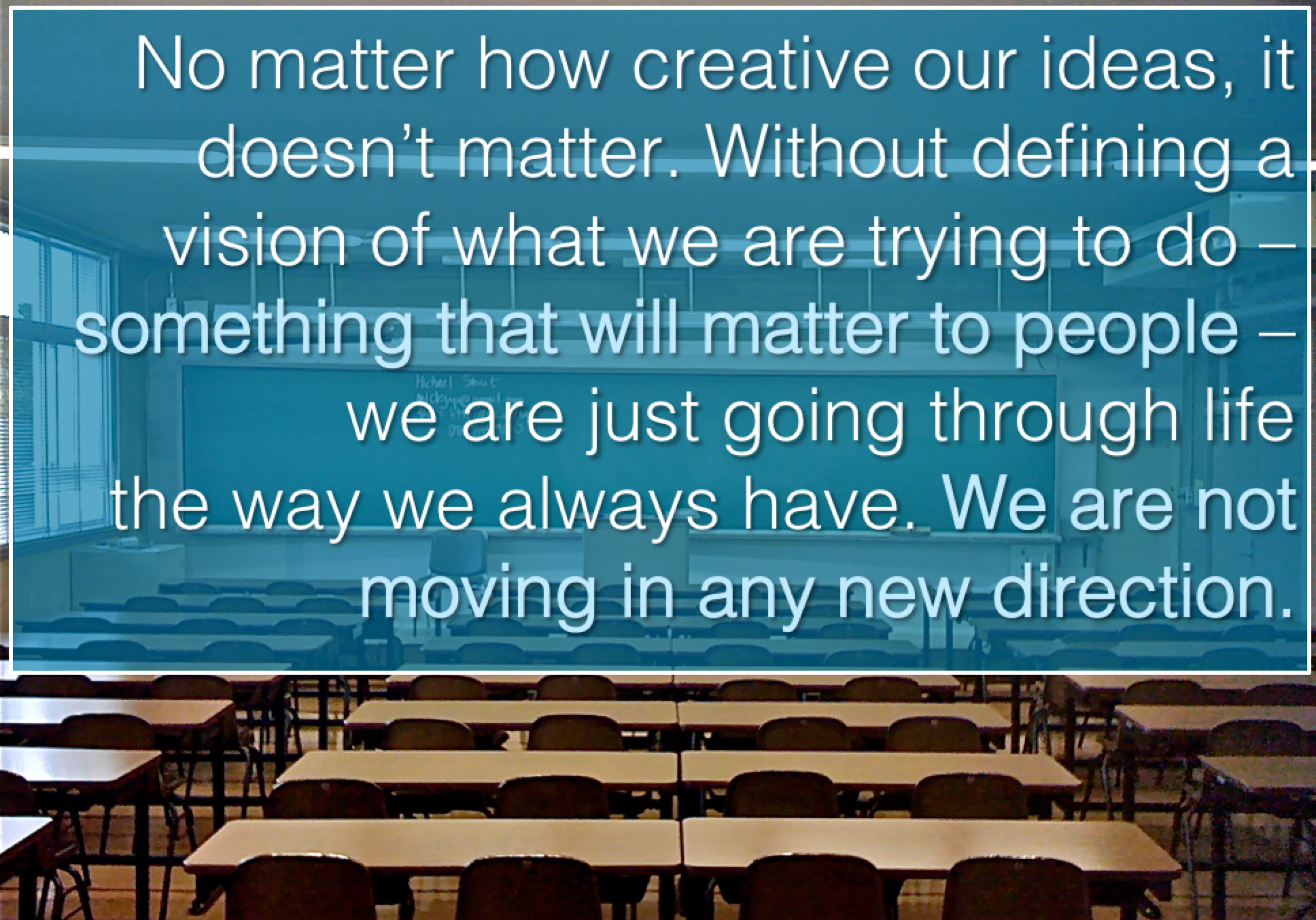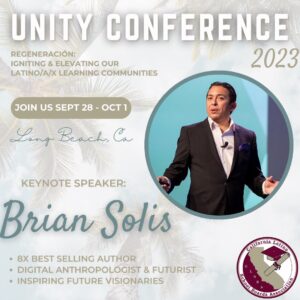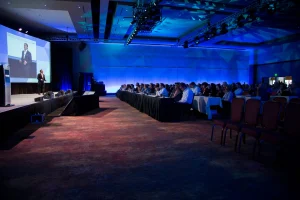Here’s a story I haven’t shared much, but I’m doing so now because of an opportunity I recently had to present at the Learning Technology conference in London. Over the last two years, I’ve personally studied learning technology and also learning behaviors to relearn how to engage Generation C through analog and digital media.
While writing WTF, I studied the learning patterns and preferences among Generation C and how they differed from less connected students. What I learned reshaped how I assemble and present material, how I write, and how I visually communicate. Furthermore, it inspired me to restyle the UI, design and layout, and the flow to function and look less like a traditional printed book and instead perform with the familiarity of a digital medium in an analog package. For those who have read the book, this explains the square shape and four-color format as it mimics a screen. This work also represents why there’s a navigation bar throughout the book and graphical breaks that are presented with cadence.
In the end, this experience made me rethink everything. If I could take these learnings into a book, could it apply to conventional text books? Could it encourage a new way to teach rather than force students to conform to customary methods? What was clear though is that technology plays a part in all of this but the real story was influenced by behavior…behavior that’s different than the world I know. As tempted as I was to apply these resources to building a killer digital app for the book, it was a lesson to re-examine everything we take for granted today, everything we do simply because it’s the way things have always been done, and more importantly, a lesson in restraint. By restraint, I mean holding back from using technology for the sake of technology and instead take a few steps back to take something ordinary and make it matter in a digital society.
As a result of this work, I was invited to present at Learning Technologies in London to share my experience and outlook on the future of education and training. Ahead of the event, I spent some time discussing my presentation with Jon Kennard of Training Zone. I wanted to share that conversation here…
Why go all the way to London to talk about the future of learning?
Learning Technologies is one of the most prominent events where the discussion of technology versus behavior needs to gain momentum. I was more than excited to share my research…I was also eager to learn from other experts from around the world.
A, B, C, Easy as Can’t Teach Me
I see Learning Technologies as an opportunity to share and learn from those defining the future of learning and those also confused, frustrated or intimidated by it. Technology, taking learning out of the discussion for the moment, is part of the solution but it’s also part of the problem. In my research, I explore the dynamics of human behavior from a bottom-up or escalation perspective. Whether you’re a student in university or an employee learning new skills or procedures at an organization, the philosophies and systems governing education are traditionally designed from that of a top-down approach. Yet how we use technology in our real life is completely different than how businesses or schools are using it to teach me. There’s an incredible disconnect and the gap is only getting wider.
Let me give you an example…
In the past, education was something designed by experts who assembled the knowledge sources and materials necessary to prepare students for the next related subject or perhaps for a particular profession or overall direction. As technology was introduced into our everyday culture, it did so usually from the top down, typically in work or school simply because of the high purchase and management costs. Here, technology was meant to increase efficiencies, reduce long-term costs, and improve the dynamics for learning. Organizations were initially responsible for how we were introduced to technology and therefore how we used it. This process largely governs how we learn today.
As cost and adoption barriers fell, technology worked its way into consumer homes. With the rise of social and mobile, technology is now part of our everyday lifestyle. The result however, is that consumer familiarity with technology and how quickly they adopt and incorporate it into all they do has outpaced that of companies and institutions. The impact is profound. People are learning, communicating and collaborating differently in their personal life. Yet elsewhere, they’re expected to follow dated protocol that is at best counter-intuitive. This is causing a revolt which is only going to become increasingly dire as time and technology progress.
Students, employees, are fueling an escalation of expectations and demands to do things differently. At the same time, decision-makers are struggling to figure out why investments don’t pan out according to plan. They still see how people use technology as novelty and even frustrating because it’s always compared to the way the world was and not the world as it’s changing. The only way to take a meaningful step forward is to understand how to adapt legacy investments, systems and processes to pave the way for a more engaging and productive future for all.
Right now, we take new technology and give it to an architect who sees the world as it was yesterday. They act and think differently than Generation C (Connected) and are out of step with them from the beginning They see something new and put into a familiar box, just because this is the way it’s always been done. Therefore they take something that’s native to a new world and forces it to comply within a legacy paradigm defined by dated philosophies, systems, and reward systems.
No matter how creative our ideas, it doesn’t matter. Without defining a vision of what we are trying to do – something that will matter to people – we are just going through life the way we always have. We are not moving in any new direction.
“What’s key to understand is how people are using technology and how their behaviors, values, and expectations have evolved. Once you do, you’ll see that technology becomes an enabler for something more natural”
Learning Starts with Unlearning
Said simply, the answer is not technology. Moreover, don’t force conformity because it’s the way you learned or because you’re forced to use legacy as a starting point. If you do, you will follow the ongoing march of complacency that throws technology at problems and each time with similar, lackluster or failing results. What’s key to understand is how people are using technology and how their behaviors, values, and expectations have evolved. Once you do, you’ll see that technology becomes an enabler for something more natural, creating a culture of learning and collaboration that’s more intuitive, organic, and successful. This gives rise to more than IT or technology experts. Digital anthropologists and other social and data scientists will help us empathize with a connected generation or Generation-C as I call them, to lead instead of react to each trend.
Everything starts with you. I understand it’s difficult and daunting. After all, there’s a reason why change is either slow or ignored. It takes courage to break what isn’t yet broken and rebuild it in a way that others can’t yet visualize, appreciate or support.
This is a time to rethink…everything. And, what a wonderful time it is to be alive for those who can see these challenges as opportunities to invent and reinvent all that makes the world go ’round.
Connect with me: Twitter | LinkedIn | Facebook | Google+ |Youtube | Instagram
Image credit: Shutterstock







Post by Uma Jha
The future of learning is unstuck now. Education should be
technology in perfect sync with behaviour for a sustainable society.
These are times to survive “Content Shock” and the Impending
Content Marketing Collapse. Is it true that content marketing is unsustainable?
Are we heading for a Content Cliff? Let’s take a look at that idea.
You approach a “content cliff” only when your
audience is not in tune with your ever-evolving content. So the trick is in
evolving the audience as well as your content. You cannot divorce one from the
other. Be sensitive to audience needs and your content will never collapse. Go
around building an audience that can understand your content. Work on your
audiences mind as well as your content. A lot of energy will have to go into
it. Like not throwing pearls of wisdom before a hog, but intelligent and aware
people. You’ll suddenly find there is no noise to rise above or no cutting
through the clutter. A lot of energy will be saved too, not just expended. Good
luck to all of us to talking to a society that is always sustainable!
One way of doing this is through Rainmaker Content. In other
words, content created to “make it rain” — to serve a business purpose in
attracting a larger prospect base, bringing in leads, nurturing and educating
those leads, and paving the way for a sale. What is Rainmaker content:
Solves real audience problems, Reflects the character,
passion, and knowledge of an authoritative person, Finds a fresh approach to
the topic (especially if it’s a popular topic), and Is interesting and easy to
read. Rainmaker content is real-world content. It has to be interesting. It
needs to creatively differentiate itself from what’s come before. It’s always a
good idea to promote it intelligently. And most importantly, it has to solve a
real audience problem.
The authority to lead does not come from power given by an organization. A leader serves best when he knows his group and let’s their intelligence shine
Education is jus a chance to be a good leader
well said…
Warren, on the other hand, a leader must not be suicidal and create his own Frankenstein. We must recognize such tendencies when we choose to follow a leader. And of course, you have to be a good follower first, to be a good leader.
Much of the current educational industrial complex traces its DNA from Prussian educational institutions. Talk about outdated. The subtext I’m getting from your post, Brian, is that there should also be a focus on what drives behavior. I am, of course, talking about CHARACTER. This was the factor that was leeched out of the process by modern educational systems.
+100
Gene, I keep butting in, as usual to share my knowledge too. What drives behaviour today is what we call our “vital” or our psychic self. If you don’t rein in your vital well, it can kill your body. So the vital was leeched out of the process by modern educational systems and replaced by the “divine” or the “supramental” which deals with our “overmind”. This is what evolution is and it’s inevitable. Do not resist it. Just surrender and it’ll be painless.
Not sure I agree with you other than the fact we are outpacing businesses with our use of technology. That will always be the case because of so much money spent inventing things we don’t use even though the tech people thought we would. In fact Facebook Brand pages came from users creating fan pages of things they like. Facebook didn’t invent Brand pages. Their users did. The things Facebook invented (places, brand page store fronts, etc) users rejected.
I also agree that we can always teach new and better ways. But that doesn’t toss away the old teaching methods. They just adopt. Just because we don’t need an Abacus to count doesn’t mean we count differently or even learn differently. Just means the tools have changed.
And not sure the point about Generation C is accurate. Just like every generation they want to do their own thing (such as rejecting Facebook in favor of networks the adults aren’t using). We all like to be rebellious when young (well most of us) in a way of asserting/claiming an identity.
I think the big question is do we decide to stop teaching things machines do for us. Technically no child born today should need to know Math. We have machines that do math for us. So do we teach calculus or just teach students how to input into a calculator the right numbers to get an answer? Do we accept Wikipedia as a reference or do we reject it because it technically is really just agreed upon opinion?
Subject: B+
Content: C+
Clarity: C+
Thesis: C+
Overall Post Grade: B-
Howie, thanks for the comment and the grade. I think you and my thesis are on different tracks. This isn’t about accepting anything, it’s about changing approach to have greater impact. It starts with us…
p.s. Generation C is not about younger age groups, it’s a bigger, cross generational category that includes anyone who lives the digital lifestyle regardless of age.
Howie, first there was Robinson Crusoe counting his days on the island with drawing lines and he was so comfortable doing that. Then we had those who counted on their fingers and they were so comfortable doing that. Then came calculator and then Abacus where people are equally comfortable. So you see they do get progressively comfortable with newer tools to match their growing receptivity. Anything else is slow, boring and devoid of “fun” and has the tendency to get tossed out of our mindset. And eventually get tossed out of the market.
It’s so important to see that Gen C use tech but leave it too, using what makes sense and moving on rather than holding on. Technology is good but people are far more important. This generation which includes people from 0 to 100+ is using what makes sense, why hold onto how to use MySpace or why have the Bebo logo in your powerpoints if the people you are talking to aren’t using those platforms. We should be locating, listening and engaging with people who are relevant to what we are doing, it’s how it’s always been and gradually you get people coming in from other networks and communities.
Technology is fine and helps us in time, benefits and values but it hasn’t got perception and instinct on the levels we work at and the speed we work at. That’s what Gen C and anyone simply using tech is doing, they’re using Snap Chat when it makes sense, they are using Facebook when relevant as well as G+ and Linked In and What’s App and so on.
What wastes or misuses time is when people go looking for the next big thing, that’s desperation and greed as the next big things have always come naturally. The Beatles worked on what they were doing and hit something at the right time they didn’t go out of their way to become what they became. Whether that’s a good analogy i don’t now as I think they just a pop band but they changed things as have other musicians, artists and creative people.
It’s those who are creative who lead the way as they don’t wait for everyone else to say it’s ok you can do it, they just do it. I was once performing as a Living Sculpture and looked down to see Gene Wilder looking up, in disguise. i could have uncovered him for the 300 people behind him. Better than that i had 5 minutes performing with him just for each other – we had an understanding for those 5 minutes.
Using technology is more than tapping the keys and reading a spreadsheet it’s about analysing situations and working on instinct and perception in the moment, here and now. As tomorrow never comes and if it did itwould be too late as everyone else was active and alive in the moment.
Have a moment watching from a coffee shop window, the world works on billions of axis – they are the people, when we click into one of their worlds we can go anywhere. Because we’re connected.
We can all learn from each other, don’t shut the door.
What a great comment Mark…
Thanks Brian, I’m the least techie person but at near 50 I feel closer to Gen C than anyone else. My dad told me always listen you never what you may learn whether it’s someone with everything or nothing. Personally I think those who will go forward will be those who listen and who care about people.
Have a good weekend 🙂